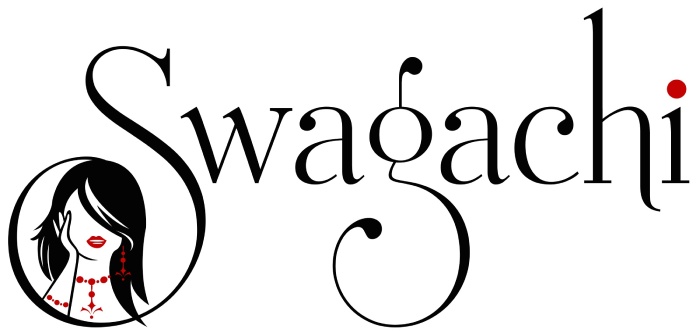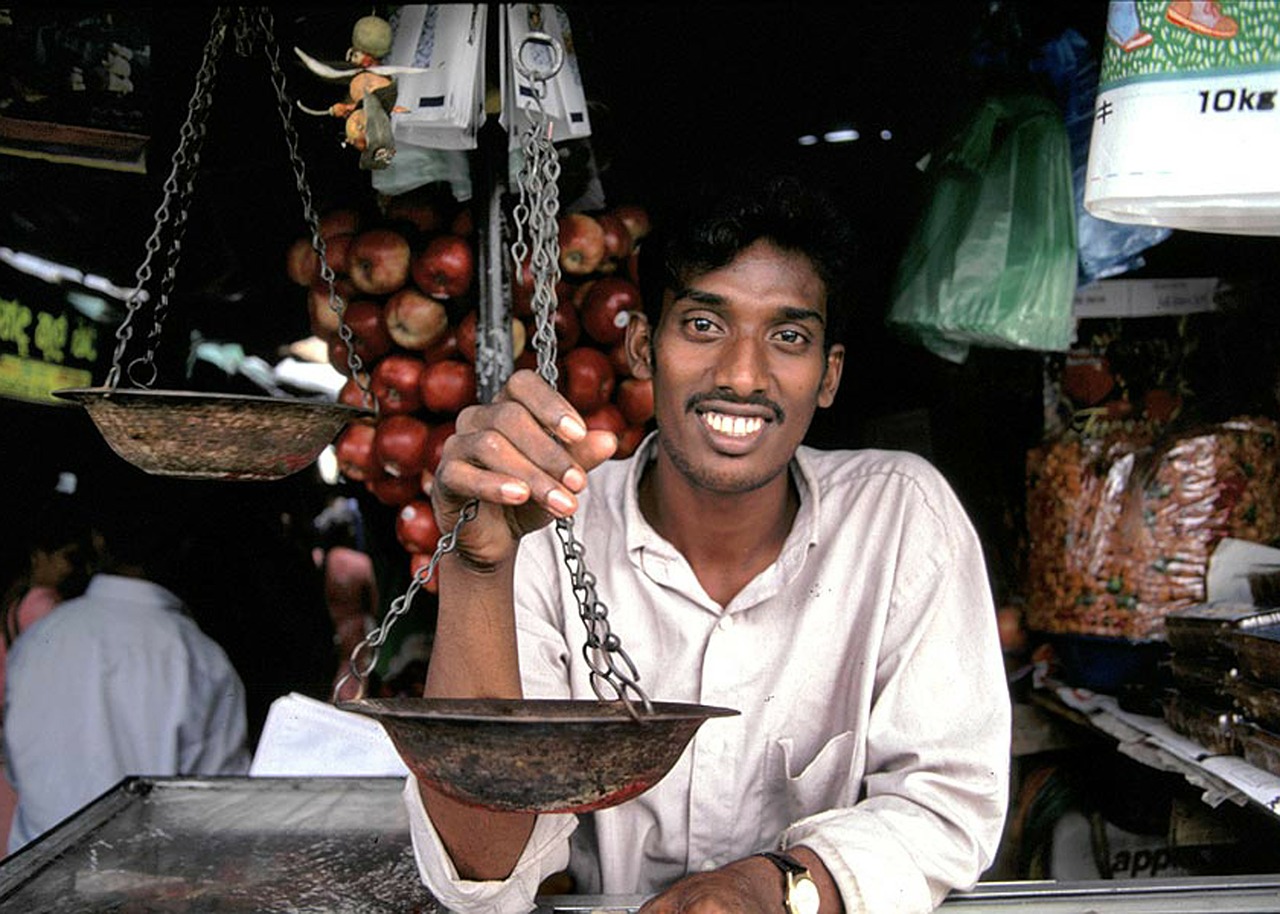Locals in the Pearl of the Indian Ocean primarily speak Sinhala and Tamil. To be precise, around 97% of the people are non-native English speakers and only communicate in two local languages. But due to the boom in the tourism industry of Sri Lanka, more and more people have started to learn English. Even though you will do just fine with the English language, learning a few Sinhala and Tamil words and phrases will enhance the experience of your solo trip immensely.
While you need not learn Sinhala and Tamil to become a scholar, the locals will appreciate it if you can try and speak a few words in their language. Do note that only one in every four people in Sri Lanka can talk fluently in English. So, learning their language becomes all the more important. And it might seem like a herculean task, but if you give yourself a few hours, trust me, you can do pretty well!
And you do not even need a few hours anymore! I have compiled a list of the 25 most useful words and phrases for solo women travellers in Sri Lanka. I’m pretty sure these will help you communicate in the country and not make you feel like an alien.
Most Useful Words and Phrases in Sinhala
Sinhala is the native language of around 72% of the population. That’s roughly 3 out of every 4 people that you meet in the country. This is the reason why learning a few words and phrases in Sinhala should be your first objective. You can mostly find people in the southern, western, and central parts of the country who speak Sinhala. That includes places like Galle, Colombo, Kandy, Nuwara Eliya, and others. Here are some of the most useful words and phrases in Sinhala.
1. Āyubūvan
Translation – Hello
Nothing is more important than greeting someone. And there’s no better place to start learning a language than a simple hello. While everyone understands the word “hello,” saying it in the local language can grab their attention which might be enough to start a conversation. You can greet your hotel staff, a shopkeeper, or anybody this way as it is an excellent introduction to the following phrases.
2. Magē nama *name*
Translation – My name is *name*
After greeting someone, it’s a great idea to introduce yourself in the local language. It is a great starter to spark a conversation. Let’s say you are at a place where you would like to make friends, be it a restaurant, a beach, or wherever. In that case, it’s best to start off a conversation by introducing yourself in the local language and leaving the other person amazed as to how a tourist can speak the local language!
3. Oyāgē nama mokakda?
Translation – What is your name?
After introducing yourself, make sure that you ask the other person’s name too. You wouldn’t want to present only yourself and not ask the other person about anything. This might come off as being a bit rude. Once you ask someone something as simple as their name, you will get to know a lot more about them, even without asking! Also, this gives them a chance to talk, and you can take a back seat. Isn’t that great?
4. Kohomadha?
Translation – How are you?
Asking a person about their general wellbeing is always a nice gesture. It sends off a message that you are really interested in talking to them and making friends too, even though you might not understand their language very well. Instead of answering this question in a monotonous way, they might explain how they actually feel. So, you can ask this question when you really want to know how a person is doing.
5. Oba kohendha?
Translation – Where are you from?
You can ask a person where they are from and learn a lot about that place. Even though Sri Lanka is a pretty small island country, there are many beautiful places that you can visit on your solo trip. And who knows, a local might guide you about seeing a stunning destination if you just ask them which area they belong to. They might even explain in detail about the little things and spots that you must visit in that area.
6. Metana nawaththanna
Translation – Please stop here
This phrase comes in handy whenever you decide to take a tuk-tuk in the country. Instead of trying to make the driver understand what you mean by saying a hundred words, you can simply learn these two words and make your life easier! Not only that, this will most definitely save you from being overcharged by the driver, which is one of the most famous tourist scams in the country.
7. Stutiyi
Translation – Thank you
What’s more polite than a thank you in the local language? While it is understood worldwide in English, saying it in the local language is something special. You can say it to a seller after you are done shopping, or to a waiter after receiving your food, or to anyone you wish! Saying this in the local language will instantly bring a smile to anybody’s face.
8. Subha davasak
Translation – Have a nice day
After having a pleasant conversation with someone, you can indicate this by saying something like “subha davasak.” It would send a message to them showing that you had a lovely time talking to them. You can also ask for their number or exchange your Instagram identities if you would like to meet again. But only do so if you have a strong gut feeling about it. Don’t do so just for the sake of it as you wouldn’t know much about a person just by meeting them once.
9. Oba ingreesi kathaa karanavadha?
Translation – Do you speak English?
This is one phrase that you MUST learn no matter what. It might seem to be a little lengthy at first, but it isn’t challenging to learn or remember if you give it a few tries. Let’s assume that you are landing in Sri Lanka tomorrow. In that case, there is no chance that you will learn more than a few Sinhala or Tamil phrases. Then, it’s best to politely tell the other person that you do not understand the local language and ask if they speak English.
10. Singhala Danna Naa
Translation – I don’t speak Sinhala
Suppose you cannot learn essential phrases for any reason. In that case, it’s best to convey the message to the other person rather than making a mess of the local language. It’s not wrong to try something new, but you shouldn’t do this here when it comes to something important like a local language, among other things. More often than not, you will notice that the other person will start speaking in English. That’s how good the locals are!
11. *any word* kiyanne kohomadha?
Translation – How do you say *any word* in Sinhala?
If you are out of topics for a conversation, it’s best to ask the other person to teach you a few words in Sinhala. Not only will this keep the conversation going, but you can also learn a few words in the language. And a totally new conversation might start out of nowhere. However, this is only optional if you want to continue the conversation. But even if you don’t want to, you can simply learn a few phrases in Sinhala. Who’s stopping you?
12. Samāvena
Translation – Excuse me
You can use this phrase in various situations, and it’s very helpful. If you are about to leave a place, be it a bar or restaurant, you can use this phrase to convey the message to the other person clearly. Or, if you want to stop talking to someone, you can use this and add that you have some important work that you need to get done with.
13. Karunakarala
Translation – Please
While everyone understands this word in English, you can say it in the local language to have a more significant impact. Let’s say that you are in a rush and need to get to a place but can’t find any transport. In that case, you can politely ask a tuk-tuk driver to take you, and he might agree. Not only that, you can use it to order your food at a restaurant too and shock the locals that you know a bit of the local language too!
14. Meeka kiyadha?
Translation – How much is this?
When you are out shopping for some souvenirs in the market, the last thing you want is to pay for something more than what it is worth. The best way to avoid this is to ask for the price in the local language. This will send off a signal to the seller that you know your way around the country even though you are a tourist. By doing this, the seller will refrain from overcharging or looting you, and you can save some money.
15. Stesemeta eka ko?
Translation – Where is the station?
Sri Lanka is known for its Kandy to Ella train ride. It is one of the best things to do in the country, and you must try it at least once. Also, you can travel using the train if you wish to see some beautiful locations and have some extra time on your hands. But if you are unsure about where the train station is, you can always ask the locals in the local language. This will prevent anyone from pranking you by directing you to the wrong location.
Most Useful Words and Phrases in Tamil
Even though Tamil isn’t as widely spoken as Sinhala, around 25% of the population natively speak Tamil. Some people think that Sinhala and Tamil are the same languages with just different names. But that’s nothing more than a total misconception. You can only find people who speak Tamil in the northern and eastern parts of the country. That includes places like Jaffna, Trincomalee, and others. Here are some of the most useful words and phrases in Tamil.
16. Vaṇakkam
Translation – Hello
While there’s nothing wrong with greeting a person in English or Sinhala, it’s always best to start off on a good note by saying something in the most commonly spoken language in any place. And that is Tamil in this case. Nobody will tell you anything, even if you greet them in Sinhala or English. But little things like these show that you have done your homework and respect their local language.
17. En péru *name*
Translation – My name is *name*
While you might not be a proficient Tamil speaker, you can definitely introduce yourself in the language. I would argue that introducing yourself is easier in Tamil than in English! Just saying two words would make people understand your name without you having to repeat yourself. Now tell me that learning the local language is not worth it!
18. Naan *your home country* irundhu varéan
Translation – I am from *your home country*
Telling the other person where you are from is enough to understand how much you know the local language. Not only that, they might ask you questions about your home country, and you can have a friendly conversation too. Further, you can ask them some questions about Sri Lanka and learn a little more about their country. There are many great hidden places in the country, and some locals might even recommend a spot or two which will make your trip more enjoyable.
19. Enakku puriyala
Translation – I don’t understand
You will be using this phrase a lot. Whenever you use a Tamil phrase, it’s a natural tendency of people to reply in the same language. But if you do not understand what they mean to say, you need to convey the same to the other person. Don’t nod your head or show that you understand things if you don’t. Instead, just say that you don’t understand, and people will switch to English.
20. Nienga English pésuviengala?
Translation – Do you speak English?
It’s better to ask someone right at the start if they can speak in English. This way, you need not be hesitant about speaking the local language ideally and not worry about making mistakes either. You can open up and convey your thoughts much better if you get to know that they understand English. More often than not, you will find people that speak English, so that’s a great thing!
21. Nienga romba nallavar
Translation – You’re very kind
Whenever you find people friendly and good to you, you can let them know about it. Not only will it bring a smile to their face, but it will also make their day. I included this phrase in the list because most people you find in the country are genuinely very kind. And you can let them know this as there’s nothing wrong in telling the truth!
22. Enna vélai seirienga?
Translation – What do you do for a living?
This question can give rise to a hundred other questions and keep the conversation going forever. If you are out of topics to talk about, you can ask this question and expect some interesting answers. I asked this question too, and I got to know a lot about the local people. And if you think that you’re intruding on their privacy, you aren’t really doing so if you stick to just this question and do not go too far.
23. Idhu enna?
Translation – What is this?
If a local invites you to their home, you can learn a lot more about their culture and daily routine. If you spot a good painting, statue, or fascinating item, you can ask them what it is. It is an excellent icebreaker, and the other person will explain to you in detail about whatever you ask. You cannot use this phrase everywhere, but it is one that you should definitely learn and use wherever you think it’s right.
24. Naan thamizh pésa véndum
Translation – I need to practice my Tamil
There’s nothing wrong with admitting that you need to work on your Tamil. While you might not really practice your Tamil after the trip, you can indeed have a nice laugh with the other person when you use this phrase. Also, you can use this if you don’t have anything to say in the local language. And even if you make a mistake or two, you can make a light joke in the local language by using this phrase.
25. Naan poga véndum
Translation – I have to go
Whenever you need to go, what better way to bid adieu than in the local language. You can simply say goodbye too, but the locals wouldn’t expect you to say goodbye in the local language. By doing so, they will know that you had a lovely time talking to them and what’s better than spreading some happiness? Also, if you are in a hurry and need to leave, you can use this phrase.
Those were some of the most useful words and phrases to help you in your solo trip to Sri Lanka. While you can have a great time without learning much about the local language, I would suggest that you learn as many words as possible to not feel like an alien in the country. You can save this blog for later and learn some words whenever you want to. But whatever you choose to do, remember that Sri Lankan people are some of the kindest and most welcoming you will come across. Due to this, nothing should stop you from learning a few words and phrases in the local language. Pack your bags, book your ticket and get ready to have a wonderful time in the country!









Leave a Reply